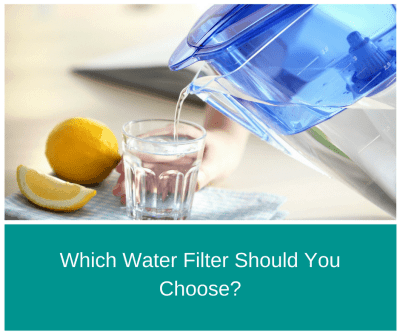
Do you know what’s in the water you drink? If you’re drinking unfiltered tap water, the answer is harmful chemicals and pollutants. Fortunately, you have several options available when it comes to filtering drinking water to avoid consuming a chemical cocktail. Of course, you’ll find pros and cons with each filtration system, but finding the type that’s best for you depends on your home, lifestyle, and budget. Whether you want to start small with a filtered pitcher or invest in home water delivery in Atlanta, here’s a few handy comparisons for finding the right system for your home.
Home Water Filter Options
Pitcher Filters
These portable pitchers are widely available and come in a variety of sizes, styles, and even colors. While the initial purchase price is low, the costs can add up quickly when you factor in how frequently you’ll need to replace the filter.
Pitcher filters work off a gravity-based filtration system using activated charcoal to remove odors and substances like lead and chlorine. They can be slow to fill, and their filtration system isn’t effective at removing heavy metals, fluoride, or volatile organic compounds (VOCs).
Faucet Attachment Filters
Faucet-mounted filters use the same technology as pitchers, which means they’ll reduce odors and chlorine while leaving some chemicals behind. The difference is that they use the water pressure in the faucet to filter, making them more efficient than gravity-based pitchers.
These filters are easy to install, provided they fit on your faucet, but they can slow water flow. They last longer than pitchers and give you the option of switching between filtered and unfiltered water.
Under-the-Counter Filters
If you’re ready for the upfront cost of parts and installation, under-the-counter filters reduce around 10x more contaminants than pitcher filters. You may have to call a plumber for this type of filter since many require that you drill a hole and mount it to a dedicated faucet on the sink counter.
Reverse Osmosis Filters
When paired with carbon block filters, reverse osmosis systems remove a wide array of contaminants. The filters themselves are costly and can be very slow to fill. Reverse osmosis filters remove all solid materials, including important minerals that keep your water healthy and even better tasting. They also produce a significant amount of wastewater — around 3-5 gallons of wastewater for every filtered gallon.
Home Water Delivery in Atlanta
The best water is bottled at the source using sustainable technology to protect its natural purity. Lipsey Water is sourced from a rock spring in the Blue Ridge Mountains, where it’s protected from industrial and agricultural contamination. We use a minimal filtration system that removes fine particulates, toxins, and chemicals, leaving the beneficial minerals you need intact. Experience the exceptional taste of fresh mountain spring water delivered right to your home with a free, two-week trial! Contact us or call 770-449-0001 today to get started.
